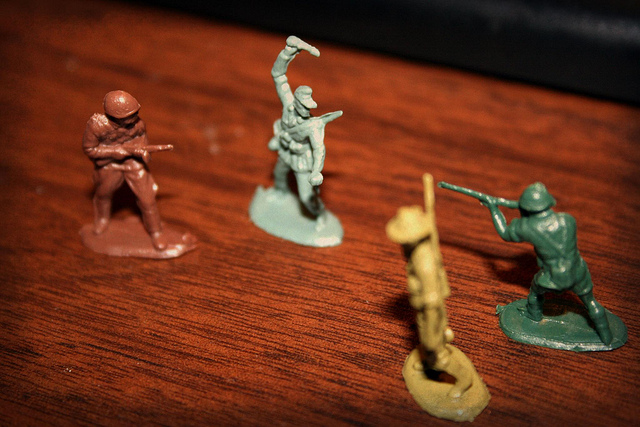
After the 13 November terrorist attacks in Paris that left 130 dead, I wrote a commentary entitled ‘We Are At War’— and faced considerable criticism from readers, Europeans and non-Europeans alike. How dare I use the word ‘war’ to describe the attacks! Words are weapons, and misusing them is irresponsible, even dangerous. Had I not learned anything from George W. Bush’s jingoism?
In fact, I knew exactly what I was doing when I chose that word. And last week, when Brussels faced a terrorist attack on its airport and a metro station, the emergency services personnel chose the same word, calling for the treating of ‘war wounds.’ So I will say it again: We are at war.
Of course, it is not a traditional war. No formal declaration of hostilities was made; but the attacks on Paris and Brussels were acts of war—deliberate and brutal maneuvers planned by a group of people controlling a large chunk of territory.
These acts targeted not just Europe’s people, but also its fundamental values, and they are part of a broader pattern of aggression that will not simply fade away. Indeed, though the Islamic State’s territory may be shrinking in Syria and Iraq, it is expanding in Libya. And who knows which countries ISIS may seize tomorrow? Parts of Algeria, for example, could be vulnerable.
It is time for the European Union to recognize the reality—it is at war, whether it likes it or not—and respond accordingly. If there was ever a moment since the end of World War II when Europe needed to take charge of its security, it is now. This means both managing the threat at home and taking a leading role in the fight against ISIS, not only because of Europe’s geographical proximity, but because of the past contributions some of its member states, such as France, Italy, and the United Kingdom, have made to destabilizing the region.
In this endeavor, it is critical that the terrorists are not conflated with the refugees flowing into Europe. The refugees, who are being driven out of their homes largely by the actions of ISIS and other violent actors, represent an important opportunity for Europe. Today’s surging European populists, who hold European values in contempt, cannot be allowed to cause us to miss that opportunity through bigotry and fear mongering.
Of course, terrorism is not the only security threat that the EU currently faces. With the United States focused on Asia and the Middle East (not to mention itself), it is up to EU leaders to grasp the nettle of limiting Russia’s ambitions in the eastern part of Europe.
At a time when the EU—which, if given the choice, would tend to focus its attention inward – must confront such daunting external challenges, the last thing it needs is a destabilizing internal challenge. Yet that is precisely what it is facing, thanks to Prime Minister David Cameron’s feckless attempt to appease the rabid anti-Europeans in his Conservative Party by planning a referendum on whether the UK should remain a member. When your shared house is in danger of burning down, you work with the other tenants to put out the fire; you don’t fuss over who should carry the hose.
The discrepancy between what Europe needs and what it is ready to do reflects a gap between reason and emotion. Rationally, the need for greater European cooperation on security and defense, as Italian Prime Minister Matteo Renzi has noted, is obvious. Emotionally, however, the reverse appears to be true, as illustrated by the EU’s failure to formulate a common policy toward the arriving refugees.
Like Renzi today, German Chancellor Angela Merkel was alone in her plea for a humane response to the refugee crisis. For most Europeans, the situation seemed overwhelming, so they shrank from it. ‘Refugees, this is your problem,’ Latvian President Raimonds Vējonis famously told Merkel in a European Council meeting last year. Terrorism, with its unpredictable tactics and nebulous borders, elicits a similar response.
The challenge is so overwhelming, in fact, that EU countries have been unable even to share information effectively. A similar problem arose after the September 11, 2001, terror attacks in the US, which then withheld information even from its closest allies, Canada and the UK. I saw the frustration this caused first-hand in January 2002 at the World Economic Forum, where I co-chaired a private session among Western security chiefs.
Today, according to Europe’s self-determined pecking order, there are the French and British intelligence and security services, and then there are the rest. Belgium, poorly regarded in this area, given its weak state structures and complex linguistic and cultural identities, is not receiving the information that the French and British are collecting. But this is no time for arrogance, much less fear and concealment.
If terrorists are targeting Europe, it is because they believe Europe is the West’s weak link. For its own sake, Europe must prove them wrong. The only way to do that is to stop allowing the emotional desire to hide behind nationalist claims to overwhelm the rational recognition that united action is the only way to be safer.

